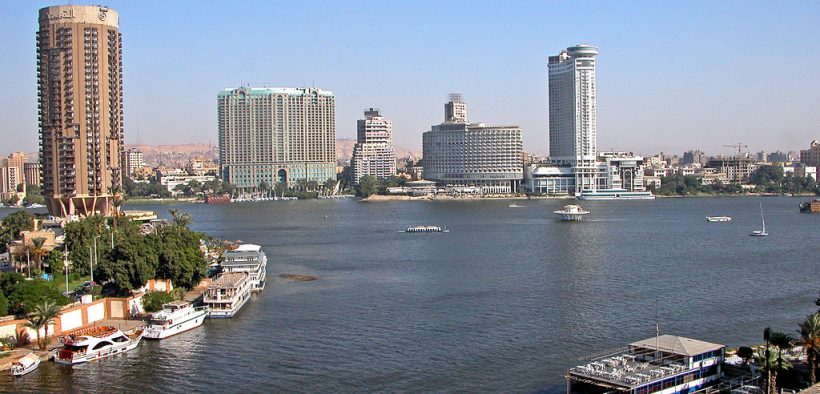Harvard Study: Egypt Is World’s Third Fastest Growing Economy

Egypt’s economy is bouncing back from years of political turmoil and uncertainty with impressive economic growth rates.
After India and Uganda, Egypt is ranked as the world’s third fastest-growing economy for the upcoming ten years, a new study by Harvard University revealed.
According to the Global Growth Projections report, released last Thursday by the Center of International Development (CID) at Harvard University, Egypt’s expected annual economic growth to reach 6.63 percent by 2026, Global Times reported.
The report highlighted that Egypt, which is ranked as the second African country after Uganda in terms of economic growth, is expected to hit an annual economic growth rate of 7.46 percent.
“The growth expectations are based on Economic Complexity, a single measure of each country’s economy, which captures the diversity and sophistication of the productive capabilities embedded in a country’s exports,” the report said.
Below Desired Growth
Rashad Abdo, an economics professor at Cairo University and head of the Egyptian Forum for Economics and Strategic Studies, told Chinese government-owned Xinhua News Agency: “Actually, Harvard’s report is even below Egypt’s desired growth that is taking good steps according to all indicators.”
He further noted that the 6.63 percent annual economic growth is easily manageable in normal circumstances, given Egypt’s improving security conditions and increasingly recovering tourism sector.
Recently, ongoing economic reform in Egypt has helped improve the country’s economy with expectations of higher growth by world financial institutions, including the International Monetary Fund (IMF).
Abdo believed that the economic reform program has clearly had an effect on the growth rate, in addition to some recent investment-supportive legislations, such as a new investment law that ensures some broad incentives to foreign investors in Egypt.
In its annual report released last Wednesday, the IMF announced it expected Egypt’s economic growth to reach 5.2 percent in the 2017-2018 fiscal year, compared to 4.2 percent last year, with a further acceleration of around 5.5 percent in the fiscal year 2018-2019.
Politically-Motivated Reform
Because of years of economic recession resulting from political turmoil and security threats, Egypt has been forced to go for strict economic reform plans, starting from 2016.
The reforms included austerity measures, energy subsidy cuts and tax increases, in addition to local currency flotation to deal with the shortage of U.S. dollars, as Global Times explained.
In response to Egyptian economic reforms, the IMF promptly provided Egypt with a 12-billion-dollar loan, half of which has been delivered to the Arab Republic of Egypt.
More Funds to Come
Recently, an IMF delegation has arrived in Egypt to review Egypt’s economic reform progress, in a way that would allow delivering the fourth installment of the 12-billion loan worthy of the 2 billion U.S. dollars.
Egyptian Finance Minister Amr al-Garhy has reportedly said that the country’s economy is preserving the momentum of steady growth and aimed at reaching a sustainable growth rate of 6 to 7 percent.





![Egyptian Whistleblower, Mohamed Ali, Announces Movement to Oust Sisi 4 Film producer and real-estate investor Mohamed Ali Abdel Khaleq at a press conference in London organised by Egypt Watch on 20 November 2019 [Middle East Monitor]](https://citizentruth.org/wp-content/uploads/2019/11/1-4-183x96.jpg)



![Egyptian Whistleblower, Mohamed Ali, Announces Movement to Oust Sisi 8 Film producer and real-estate investor Mohamed Ali Abdel Khaleq at a press conference in London organised by Egypt Watch on 20 November 2019 [Middle East Monitor]](https://citizentruth.org/wp-content/uploads/2019/11/1-4-80x80.jpg)






What do these numbers mean? Egypt remains a social basket case.
As does India.